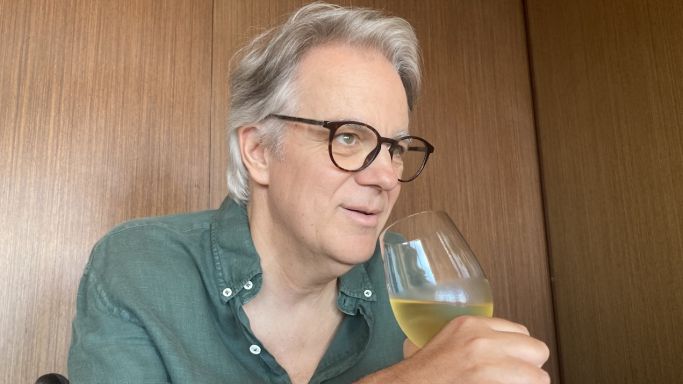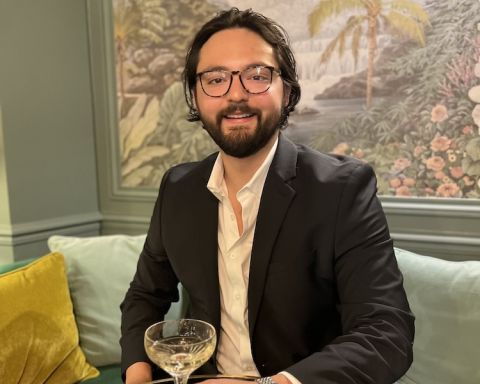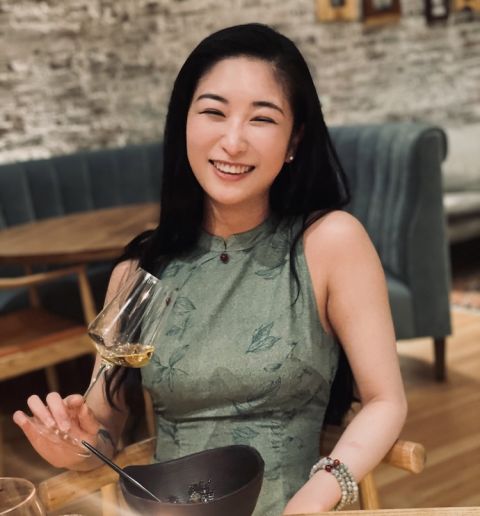Gérard's son Romané Basset begins a series about some of this year's candidates for the most valuable of the many awards he and his mother Nina administer for the Gérard Basset Foundation.
Jancis writes This year we had 24 applicants for the Taylor’s Port Golden Vines Scholarships for MW or MS candidates, worth up to £55,000 each. You can read about previous winners of these top awards here, here and here.
This year’s applicants were of such high quality that we judges had a seriously difficult time even choosing which ones should proceed to the interview stage. In the end we interviewed a total of a dozen extremely impressive candidates and will be profiling them in batches of three over the next four weeks.
I am not only a judge but a trustee of the Gérard Basset Foundation, which administers not just these scholarships but a wide range of educational grants and other scholarships – all with the aim of enriching the wine, spirits and hospitality industries, making them more diverse and inclusive. We have so far pledged £1,886,960 (not including these scholarships), reaching 1,190 direct beneficiaries all over the world with our funding. See here for more detail.
Bento Amaral, Portugal
Amaral, pitcured at the top of this article, worked as the technical director of the Institute of Douro and Port Wines (IVDP) for more than 20 years, leading the team in charge of tasting and conducting chemical analyses of wines from these appellations. As a result of a sailing accident in 1994 he lost the used of all four limbs. He represented Portugal sailing in the 2008 Paralympics.
Following a meeting with the Gérard Basset Foundation in 2022, he was inspired to start on a new path and found Humanwinety, an organisation specifically set up to provide wine-focused courses which incorporate B-learning methods that make education more approachable and accessible for students with physical and intellectual disabilities.
Drawing upon his own experiences of living as a quadriplegic, Amaral is determined to use Humanwinety as a vehicle of advocacy and meaningful opportunity creation in the wine industry. In his own words: ‘I am confident that with the creation of Humanwinety, I can fulfil myself professionally and help make the world a better place for everyone’. He has recently entered the MW programme, through which he wishes to complement his work at Humanwinety and ‘be a shining example of how people with disabilities can reach the highest levels in the wine industry’ and ‘raise awareness and increase the consciousness’ of the industry to be more inclusive and accessible.
Sammy Lam, USA
Lam grew up in a low-income, Mexican-American household and had to strive to overcome the disadvantages that these circumstances placed in his way. Unbowed by these challenges but motivated instead to transcend them, Lam sees his heritage as ‘a foundation of strength rather than a limitation’. He is a successful entrepreneur, having founded Wanderlust Wine Co, the world’s largest on-tap winery with three locations spread around Austin, Texas.
He’s also passionate about Texas’ growing wine industry and its position internationally, Lam is a board member of the Texas Wine and Grape Growers Association, as well as a key organiser of the OIV MSc (of which he is a graduate) Texas module. He seeks to use this position to ‘bridge the gap between established wine practices and innovative approaches’, thereby ensuring that his home state may claim its rightful place as a globally recognised, dynamic producer of quality wines.
In addition to these roles, he is a constant advocate for the inclusion of diverse communities, engaging with organisations including the Austin Young, Greater Austin Hispanic and LGBTQ+ Chambers of Commerce, to show that the wine industry is a place where all are welcome, very much in line with the aims of the Gérard Basset Foundation.
Junqi Peng, China
Peng’s journey in wine began in 2014, when fatefully she tasted a 2005 Château Palmer. Falling in love with wine from this moment onwards, it became a passion of hers, albeit not one that she thought would ever become a career.
A talented chemist at school (being placed in the top 10 of one million students in the Guangdong province division of the Chinese Chemistry Olympiad), she studied theoretical chemistry at university, aiming to undertake a PhD eventually. Visits to German and Spanish winemaking regions, however, convinced her that winemaking was where her true passion lay, representing ‘a true combination of art, science and philosophy’.
To change course and become a winemaker was no easy feat, however. Peng has faced many obstacles, not least being questioned, presumably on a sexist basis, regarding her suitability for such a tough occupation. Undeterred, Peng is forging ahead, applying for the MW programme and simultaneously identifying the three areas she wishes to focus upon in the next 5–10 years: establishing a winery in China; working on the development of Chinese regional and appellation regulations; and ameliorating China’s import and export regulations as they apply to the wine trade. Ambitious indeed!
Alongside wine, Peng’s other great passion is underwater photography, and indeed she sees similarities between the two pursuits, remarking: ‘both wine and ocean are boundless, unifying people and the world’.


